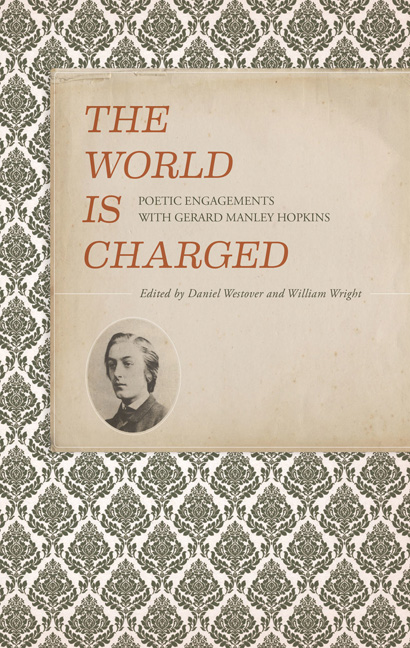Introduction
Summary
“COUNTER, ORIGINAL, SPARE, STRANGE”: GERARD MANLEY HOPKINS AND CONTEMPORARY POETRY
strange /streɪn(d)ʒ/ 10. Unfamiliar, abnormal, or exceptional to a degree that excites wonder or astonishment; difficult to take in or account for; queer, surprising, unaccountable. (OED)
There is, I have noted in my teaching, a certain emotional energy students bring to class after their first encounter with Gerard Manley Hopkins. Part bewilderment, part whiplash, it is also, always, awe. Their usual method—treating poems like puzzles to decipher—has yielded no fruit. They have encountered too much compression and coinage, too many shifts in syntax to pin down a paraphrase. Where they have previously come to class with carefully prepared summaries, they now find that they cannot separate what Hopkins is saying (insofar as they can discern it) from the manner of its saying. Instead, they return talking about language: layered metaphor, idiosyncratic diction, wrenching syntax, patterned assonance, and alliterative flurries. In other words, they want (at last!) to talk about poetry, and this, ironically, because poetry—indeed language itself—has been defamiliarized, in the Shklovskian sense of something made strange. For Hopkins, to be strange is to praise and perform creation. It is to quicken, to cry out and, yes, to dislocate at times in an unswerving attempt to strike wonder. In his poems, each part of nature speaks God's peculiar vocabulary; each word-jolt or jarring phrase points to the maker of “all things counter, original, spare, strange.”1 Language in Hopkins is sacramental because the word is more than signifier—it is incarnation. He once wrote, “The world then is word, expression, news of God.”2 For all his verbal dynamism, Hopkins did not believe in strangeness for its own sake, and he disliked other nineteenth-century poets (most notably Swinburne) who, in his view, used poetic devices as vainglorious adornment. One of many Hopkinsian paradoxes is that this most distinctive of poets does not view language as an extension of the ego. Instead, he reveres each word's inscape— his term for distinctive, exercised identity—a Romantic idea derived in part from the aesthetic philosophy of his Oxford mentor Walter Pater and in part from Duns Scotus's idea of haecceitas, or “thisness.”
- Type
- Chapter
- Information
- The World is ChargedPoetic Engagements with Gerard Manley Hopkins, pp. xvi - xxiiPublisher: Liverpool University PressPrint publication year: 2016



